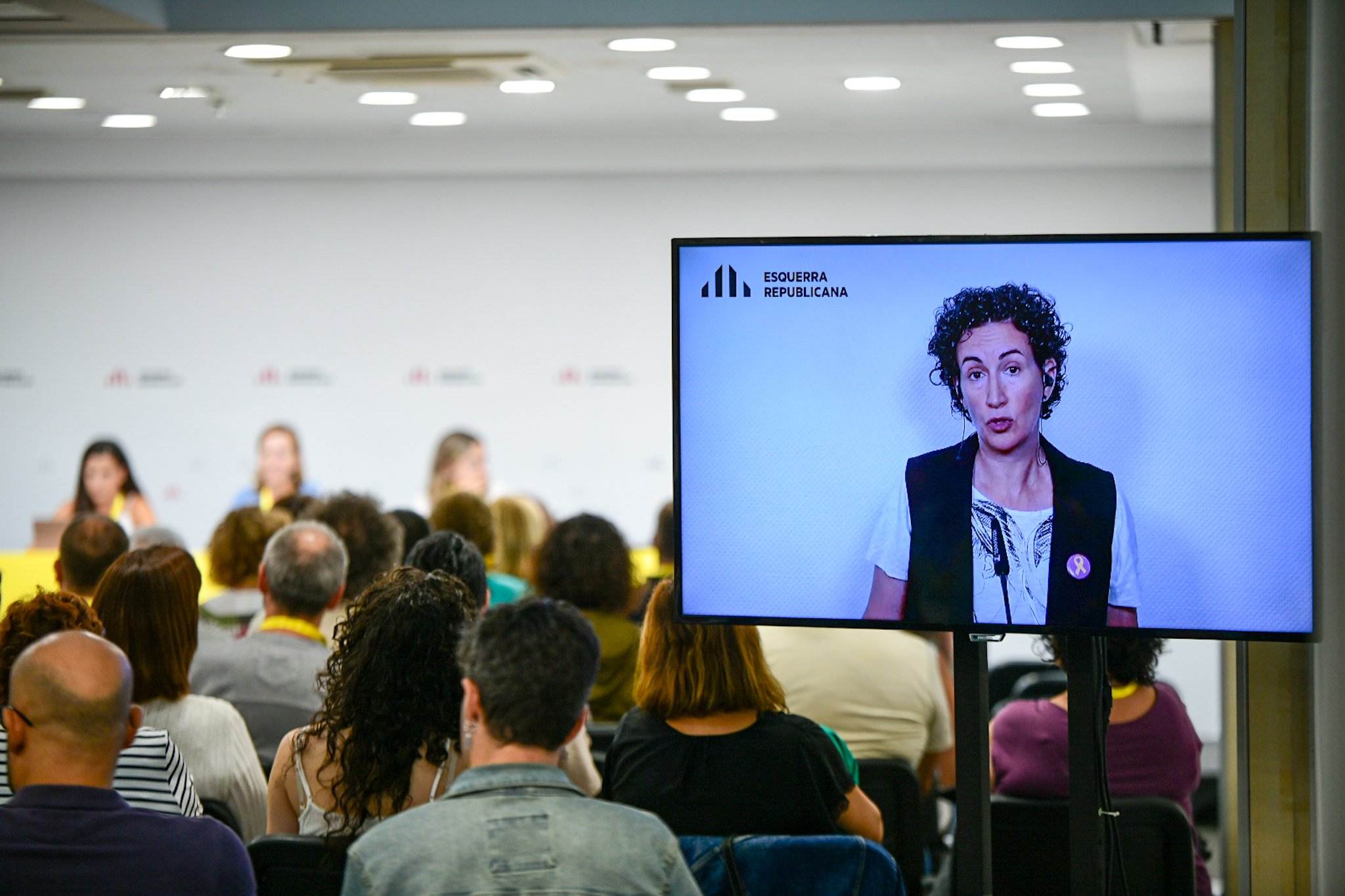The clock began ticking on Catalan election night itself, but it wasn't until last week that the date became official. Pere Aragonès, as acting president of the Generalitat of Catalonia, set the date for the constitution of the new Parliament of Catalonia at June 10th, the last day possible and the day after the European elections. On that day the Catalan chamber - which for the first time in years does not have a pro-independence majority - will have to choose its new speaker and procedural Bureau, and the voting preferences shown and pacts made could be the forerunner of the truly transcendental decision that will come afterwards - that is, the debate and decision by parliamentary vote on who will be invested as the new president of Catalonia. But now, the Catalan Republican Left (ERC) are seeking to distance themselves from this vision and to separate the negotiations for the parliamentary Bureau from those for the investiture.
According to ERC sources, it is "impossible" for these two negotiations to take place at the same time, with less than two weeks left until the constitution of Parliament, given the "rate" of the negotiations so far. This Monday at a press conference, apart from again urging Together for Catalonia (Junts) and the Catalan Socialist Party (PSC) - the two rivals to lead the new government - to get moving, Raquel Sans asserted that the negotiations had not started and that there had only been some initial contacts. After June 10th, the clock will start running again: the new speaker of Parliament will have up to ten working days to convene the first investiture session, that is, until June 25th. If this does not result in the successful election of a president to form the new Catalan government, a further countdown begins: a two-month period in which further investiture debates and votes are possible. If that period - until the end of August - is, in turn, exhausted without a new executive being formed, Catalonia will automatically be required to face a repeat election in October.
A negotiation led by Marta Rovira
Although, on election night, ERC made it very clear that the voters had given them a strong message - given the party's of 13 MPs (falling from 33 to 20) - and that, therefore, they would go into opposition, urging the PSC and Junts to reach an agreement, the party has not closed the door to negotiating either the configuration of the parliamentary Bureau or the investiture. It does, however, emphasize that its role is in opposition, for the first time in a decade.
In the midst of the party crisis - with Pere Aragonès resigning, Oriol Junqueras announcing that he will step down at least temporarily after the European elections, and the party calling a congress in November to elect its future permanent leadership - it was announced that Marta Rovira would be in charge of coordinating the post-election negotiations. The rest of the negotiation team were announced this Monday: Josep Maria Jové and Marta Vilalta - both of them senior figures in Parliament for ERC in this legislature, as president and spokesperson of the parliamentary group - as well as Juli Fernàndez and Oriol López. Fernández, territorial minister for a short period of time after the departure of Junts from the government, did not win a seat on May 12th, but the resignation of Aragonès makes a place available and he will thus return as a deputy.

